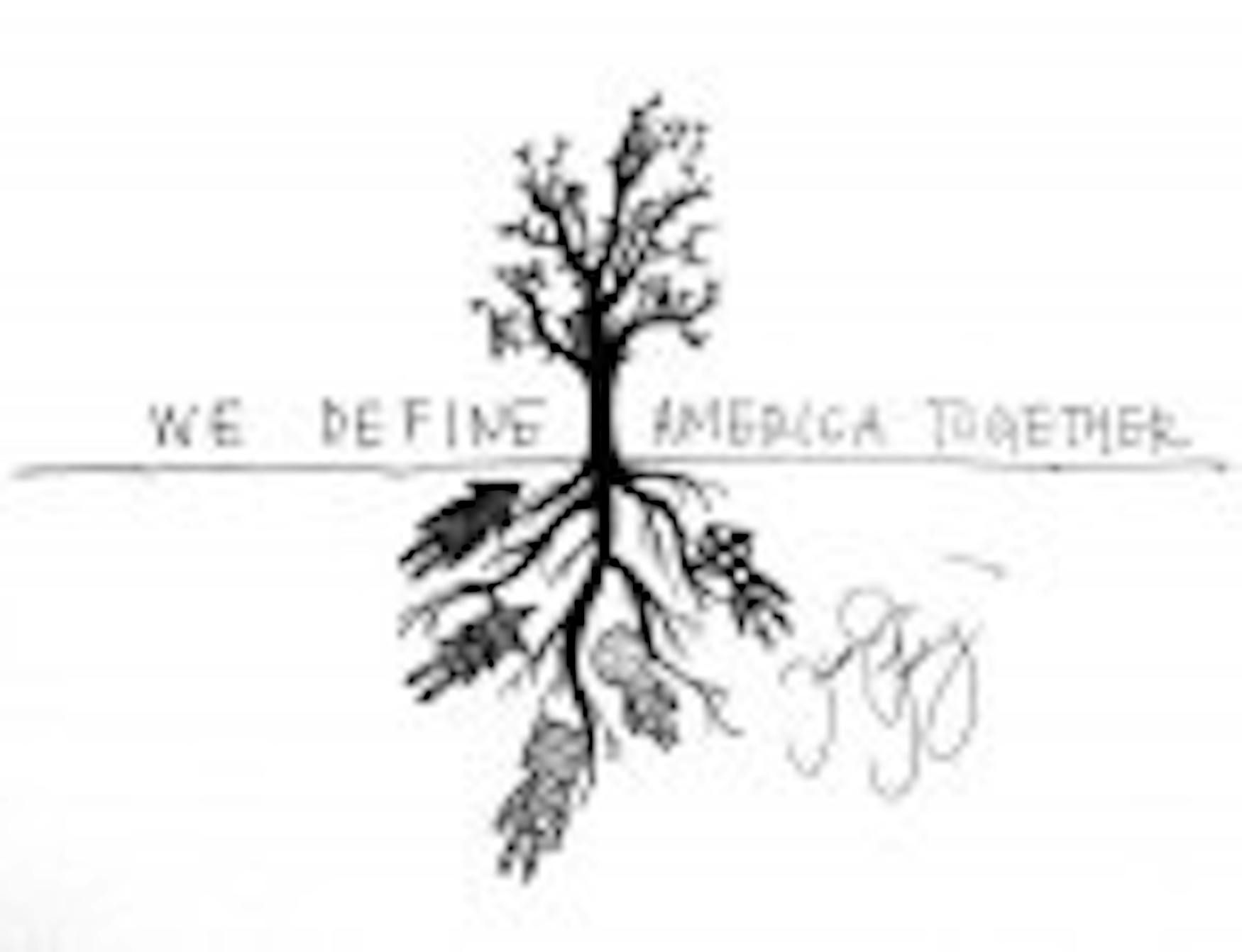American identity includes all cultures
Judgeis View
After spending four years in China, I returned to the United States when I was nine years old. I barely spoke a word of English then so I stood out not only as the new student, but also as the new student who came from a country with a very different culture. I was nervous about my classmates excluding me for speaking a language that was new to them. I feared being branded as an undesirable misfit for embracing foreign ideas and customs, such as celebrating two New Years and eating hot pot, which is made by instantly stewing meats and vegetables. Some classmates told me that I was no longer in China and needed to distance myself from it. So I tried to assimilate into the culture of my classmates; I did not want them to exclude me for being "un-American" in their eyes.
More than a decade later though, despite my previous experiences, I feel exceptionally honored and proud to be Chinese, as I realized that my Chinese qualities gave me a sense of personal uniqueness. Nothing about my Chinese culture is "un-American," for the idea of something being "un-American" is, by definition, a fallacy.
Because of this country's multiculturalism, there is no overarching definition of what it means to be "American." In reality, American culture is more of a collection of different cultures that all happen to dwell in the United States, each offering its unique contributions. No one has a monopoly over its meaning. Therefore, no American should feel obligated to relinquish his ethnic identity just to fit into a perception of what others may perceive as "American."
Being American means being proud of your culture, and channeling that pride to contribute ideas and customs to your society. The cultural components that are now well-integrated into American society, such as Halloween, Christmas and Easter, became part of American culture because European immigrants remained proud of their homeland customs. In the Chinatowns throughout the country, the streets are festive during Chinese New Year because Chinese immigrants have continued the traditions their people had practiced for centuries. Spanish is even becoming a more widespread language in the United States as Hispanic immigrants have remained proud of their native language and chosen to retain it while learning English. They, along with immigrants of other cultures, added these customs to the American patchwork because they were proud to continue their heritage, rather than hide and end it.
By suppressing one's ethnic culture, an individual stands to lose a big component of what it means to be part of this country. In doing so, he is abandoning this nation's ideal of ethnic individualism and diversity. The American identity celebrates the differences that distinguish an individual from the person beside him. By embracing his cultural uniqueness instead of melding into the dominant culture, he becomes more of an individual, and this is the most American thing a person can do.
Proponents of assimilation may argue that non-assimilation into "Americanism" can breed hostilities from those who may be averse to other cultures. But whatever negative notions one group may have against other culture, that group should accept that it has no monopoly over culture. Its prejudice is generated by the group's pre-conceived notion that diversity is undesirable, rather than by the presence of different cultures. Additionally, such hostilities often arise because one group fears the deleterious influences another culture might have on its existence.
However, this notion runs against the American idea that each person is entitled to the free practice of his culture. If one group acts hostile to another ethnicity and its culture, is that not an attempt to discourage and convert that ethnicity and to deprive it of its right to practice its unique customs? This "Americanization" is the real "un-American" act. In America, holidays of many different cultures are celebrated, but that does not mean Christmas is at risk because Ramadan and Hanukkah are around.
Undeniably, there will be some people who will attempt to pressure others to shed their ethnic roots and assimilate into the greater population. For those people who continue to act antagonistically toward a different culture, they should remember the Golden Rule, which commands people to treat others the way they wish to be treated themselves, with respect and tolerance. They must realize that the tables may, and can, be turned at one point in time, and they, the antagonistic, may one day become the antagonized.
One should not be deterred from celebrating his ethnic culture, because it helps enhance his own identity.
It is those distinctions that create the multicultural salad bowl that America is famous for. In that bowl, different components come together to make a magnificent new dish, but one can still see the distinctly heterogeneous components that each add their own tastes to the dish. The idea may be ironic, but to be part of America, start by embracing your own ethnic identity.



Please note All comments are eligible for publication in The Justice.